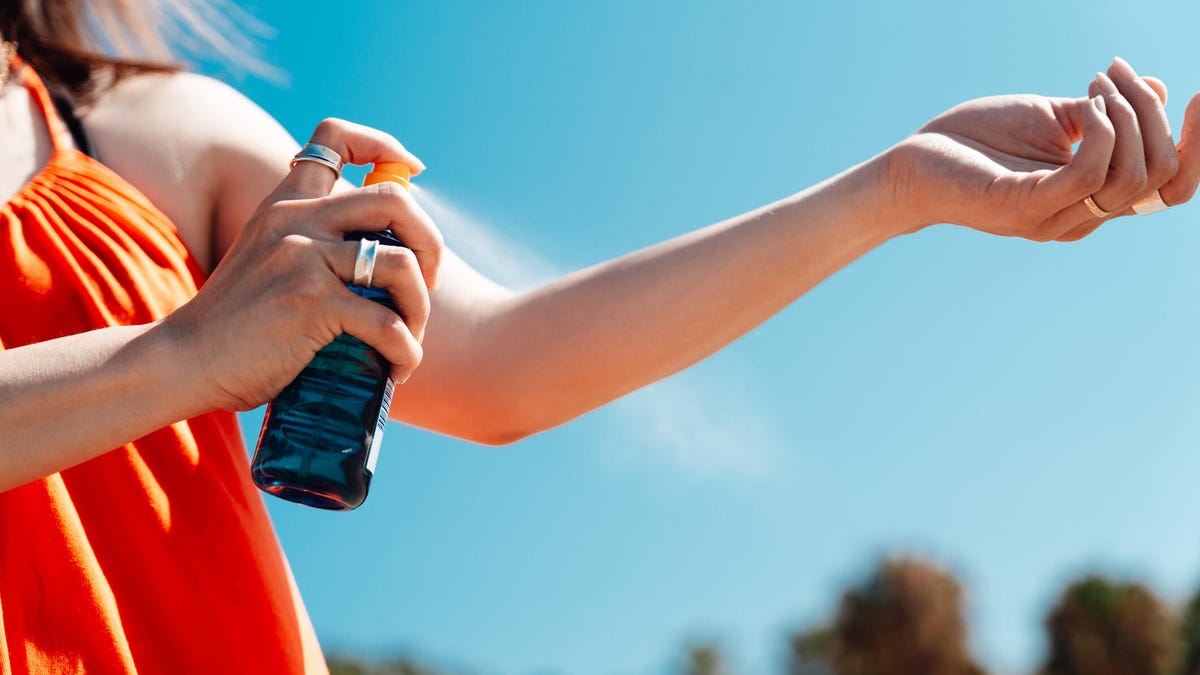 Why You Can Trust CNET
Why You Can Trust CNET Here's What SPF You Need in Your Sunscreen, According to a Dermatologist
Is higher SPF actually better? And are you wearing enough? A skin doctor weighs in.

You've heard it before, and you've definitely read it here at CNET: Wear your sunscreen, or risk exposing yourself to harmful UV rays.
But what SPF should you use? SPF, or sun protection factor, describes the amount of solar energy needed to produce a sunburn on protected skin relative to unprotected skin, according to the US Food and Drug Administration. Logic would follow, then, that wearing a higher SPF would offer you better protection when you're out and about, basking in the sun's rays.
But is higher SPF sunscreen more protective in a measurable way that actually matters? The tested difference between SPF 30 and SPF 50 is small, according to Dr. Steven Daveluy, board-certified dermatologist and program director at Wayne State University Department of Dermatology -- a difference of 96.7% blocking vs. 98% blocking, in one example he gave. But research on people wearing sunscreen out in "real life" has suggested higher SPFs are more protective, Daveluy said in an email.
Combine this with the fact you're probably not wearing enough sunscreen -- studies have shown people apply only 25 to 50% of the amount that they should, Daveluy said -- and a higher SPF may come out reasonably more protective.
"You should use about 1 ounce of sunscreen to cover your head, neck, arms, and legs when wearing shorts and a T-shirt," Daveluy recommended, adding that people without hair should use a little more.
"That means your 3-ounce tube of sunscreen is only three applications," Daveluy said. "Most people are not using that amount."
How much SPF do you need in a sunscreen?
The American Academy of Dermatology Association recommends your sunscreen be SPF 30 or higher. It also recommends you look for sunscreen that has broad-spectrum protection (it protects against UVA and UVB rays) and make sure it's water-resistant.
"If you follow the recommendations for the proper amount of sunscreen, then SPF 30 is great," Daveluy said. If you think you're skimping on the layers, though, a higher SPF could offer more benefit. He added that he generally recommends looking for at least SPF 50 or 60.
Read more: Don't Sweat It: These Clothes Can Help You Stay Cool Amid High Temperatures
Does skin tone matter when choosing an SPF?
People with darker skin tones have more melanin, which does offer some protection from the sun's damaging rays. For this reason, skin cancer rates in people of color are lower than rates in white people, but the risk isn't zero. Research also suggests that people of color may be more likely to experience a missed or late diagnosis of skin cancer, making outcomes more dangerous. (It's also important to note that melanoma can have other causes besides exposure to sunlight or UV rays, and can show up in areas not typically exposed to sun.)
"SPF 30 is the minimum for everyone," Daveluy said. He added that tinted sunscreens may be a better fit for darker skin tones, leaving less of a white cast.
"If you have very fair skin, the higher [SPF] numbers may be a good idea, especially if you aren't using the proper amount, because you will see the consequences of underuse more easily," Daveluy said.
Are there any sunscreen or SPF 'red flags'?
As long as you're wearing a minimum of SPF 30, applying it properly, and also looking for products that are broad spectrum and water resistant, you've got the basics down. Daveluy added that for people with sensitive skin, finding a mineral sunscreen with "active ingredients of zinc and/or titanium" may be a good choice.
Daveluy pointed out other measures of protecting yourself from the sun, including wearing a wide-brimmed hat, sun-protective clothing and hanging out in the shade when possible. But don't forget that sunscreen has a proven safety record going on decades, he said.
"The biggest red flags for sunscreen are any people or reports that try to tell you sunscreen isn't safe," Daveluy said.
Read more: Are You Applying Enough Sunscreen?

